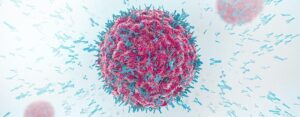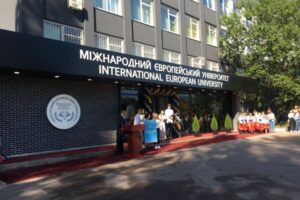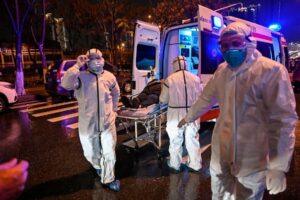
Ukraine has registered 15,936 new cases of COVID-19 and 608 related deaths in the past 24 hours, the Ukrainian Health Ministry said on Friday.”Over the past day, November 25, Ukraine has recorded 15,936 new cases of COVID-19, including 1,394 children and 303 medical workers, while 273,875 people have been vaccinated for COVID-19, among them 81,516 who received their first shot and 192,359 who have completed vaccination. In the past 24 hours, 3,208 persons have been hospitalized, 608 have died, and 24,569 have recovered,” the Health Ministry said on Telegram.Since the beginning of the pandemic, Ukraine has seen a total of 3,400,340 coronavirus infections, including 84,149 deaths.

Prime Minister of Ukraine Denys Shmyhal has said that next year, 2022, the budget for medicine will exceed the budget of 2019 by two times during the discussion panel of the forum “Recovery plan for Europe” in Karpacz (Republic of Poland).
“In parallel with the reform of medicine, we are changing our approaches. We are paying more attention to the scientific basis, development and production of our own drugs and vaccines,” the press service of the government quoted the prime minister as saying.
Shmyhal also noted that the crisis caused by the COVID-19 pandemic had affected the whole world, therefore, the countries should look for ways to overcome the challenges together.
He stressed that there are several scenarios for overcoming the crisis, and the common challenge of the countries today is to ensure an equitable and fair recovery for the entire society. He voiced a number of priorities, without which it is impossible to get out of the crisis today.
“First, one needs to have an understanding and vision of the strategy. For the first time since Ukraine’s independence, we have developed an economic development strategy until 2030, which contains more than 30 vectors and 12 programs,” Shmyhal said.
In addition, economic recovery, according to the Prime Minister, is impossible without government and business support for infrastructure projects.
“President Volodymyr Zelensky initiated the Big Construction program. Ukraine has the opportunity to build roads, restore infrastructure, bridges, airports, train stations. We pay a lot of attention to public-private partnership, which is also an important area of overcoming the crisis. Governments must take leadership to bring countries out of the crisis, but without the support of society and business, it is impossible to overcome the challenges we face,” Shmyhal said.
Among other things, the head of government noted the importance of the green transition, since it is “not only about climate change, but also about the well-being of people, significant investments, the development of hydrogen technologies and other innovative areas.”
In conclusion, Shmyhal stressed that the countries should pay attention to the development of trade and investment space and take joint steps to enhance security in the region.
As reported, Shmyhal paid a working visit to the Republic of Poland on September 9. During the visit, he met with Chairman of the Council of Ministers of the Republic of Poland Mateusz Morawiecki, Prime Minister of the Republic of Slovenia Janez Janša and took part in the discussion panel of the XXX Economic Forum in Karpacz.

International European University cooperates with the Anadolu International Medical Center (Turkey).
Anadolu is a contemporary multi-discipline clinic located in Istanbul. It treats a wide range of diseases using cutting-edge medical technologies and a professional team of specialists educated in Europe and the USA.
Center’s special feature is its affiliation with a globally renowned research medical center called Johns Hopkins Medicine in the USA.

It allows Anadolu to work with the high US standards and be on a level with world’s leading medical institutions.
International European University is an official representative of Anadolu Medical Center.

Therefore, citizens of Ukraine can obtain a free consultation of the best doctors of the medical center. Besides, patients receive assistance in organizing the trip, full support during arrival, treatment and after coming back home.
It is implemented as follows: Patients should contact the international department of the university and provide documents (medical conclusion, analyses, etc.). University staff members send the documents to the clinic and receive the plan of actions.
If patients are fine with the details, our employees give the case to a supervisor of the medical center in Turkey and assist in trip organization if necessary.

Anadolu Medical Center has its own International department consisting of 65 workers, which is responsible for patient care from abroad. They help foreign patients to understand the diagnosis, organize the trip and undergo treatment at the clinic in Turkey, as well as keep in touch with doctors after coming back home.
Besides, students, interns and doctors have a unique opportunity to undertake an internship at one of the world’s best clinics – Anadolu Medical Center!

Ukraine has registered 623 new cases of COVID-19, as well as 589 recoveries and 20 deaths in the past 24 hours, the Ukrainian Health Ministry said.
“Ukraine recorded 623 new cases of COVID-19 [including 37 children and 12 medical workers] over the past day, July 14, 2021. In the past 24 hours, 387 persons were hospitalized, 20 died, and 589 recovered,” the ministry said on Telegram on Thursday morning.
Since the beginning of the coronavirus pandemic, Ukraine has seen a total of 2.243 million cases of COVID-19, including 2.180 million recoveries and 52,685 deaths.
Over the past day, the majority of cases were registered in Kyiv (177), Odesa region (57), Zhytomyr region (33), Donetsk region (32), and Kyiv region (31).
According to the Health Ministry, a coronavirus vaccine was received by 108,759 people in Ukraine over the past day, July 14, including 61,580 persons who received the first shot of vaccine and 47,179 who completed their vaccination.
“As many as 108,759 persons were vaccinated for COVID-19 over the past day, July 14, 2021. The first shot was received by 61,580 persons, while 47,179 persons completed their vaccination,” the ministry said on Telegram.
“Since the beginning of the vaccination process, 2.476.634 persons have received the vaccine, including 2.476.632 who received their first shot and 1.305.882 who received both doses [including two persons who received their first shot abroad]. A total of 3.782.514 shots have been administered to date,” the ministry said.

Minister of Finance Serhiy Marchenko criticized head of the Ministry of Health Maksym Stepanov for poor planning of measures to combat COVID-19, while admitting the possibility of increasing spending on medicine in the state budget-2021.
“He behaves like a character from ’12 Chairs’. ‘Money in the morning – chairs in the evening, money in the evening – chairs in the morning, but money in advance.’ That’s how Stepanov behaves. His task is to get as much of a budget as possible, taking advantage of the fact that we have a COVID, we have problems, we have people dying, and then, using this rhetoric, to solve those problems that are necessary to solve. I think this is absolutely wrong,” Marchenko said in an interview with lb.ua.
“We must first propose a plan, show a solution to the problem, and there was enough time for that, and then ask the finance minister or the government questions to search for funds. And now we have the approach – first money, and then I will fight COVID-19. It is impossible to put the question like that,” the minister said.
At the same time, the head of the Ministry of Finance pointed to the unspent funds of the Fund to Combat COVID-19 at the end of 2020.
“At the Cabinet of Ministers we often sort things out, and this is normal, because I have something to ask him, in particular, about the leftovers of last year. He collected money, and in the end we got leftovers that were not used,” Marchenko said.
Speaking about the possibility of correction of the state budget for 2021, he also said there is a possibility of increasing spending on medicine.
“There is a possibility of such a scenario, since there is a need to close several issues on medicine. We will discuss with the IMF and with other partners the possibility of minor adjustments to the budget,” Marchenko said.

The list of specialized organizations that will procure medicines and medical products in 2021 was approved by the government at the Wednesday meeting.
According to the document, the Crown Agents British purchasing agency will procure: tests, consumables for the diagnosis of tuberculosis; immunobiological medicines for immunoprophylaxis of the population and products to ensure control of immunobiological preparations and medical devices; medicines for children with dwarfism of various origins; medical products for citizens suffering from epidermolysis bullosa; medicines for patients in the pre- and postoperative period of transplantation; consumables for determining the level of glucose in the blood, glycated hemoglobin; medicines for children with mental and behavioral disorders from the autism spectrum, with schizophrenia, affective disorders, hyperkinetic disorders and epilepsy; endoprostheses and implantation kits.
The United Nations Development Program (UNDP) will procure: medicines for citizens with viral hepatitis B and C; test systems for diagnosing HIV infection, accompanying antiretroviral therapy and monitoring the course of HIV infection in patients, determining the resistance of the virus, conducting reference studies; medicines and medical products to ensure the development of donation of blood and its components.